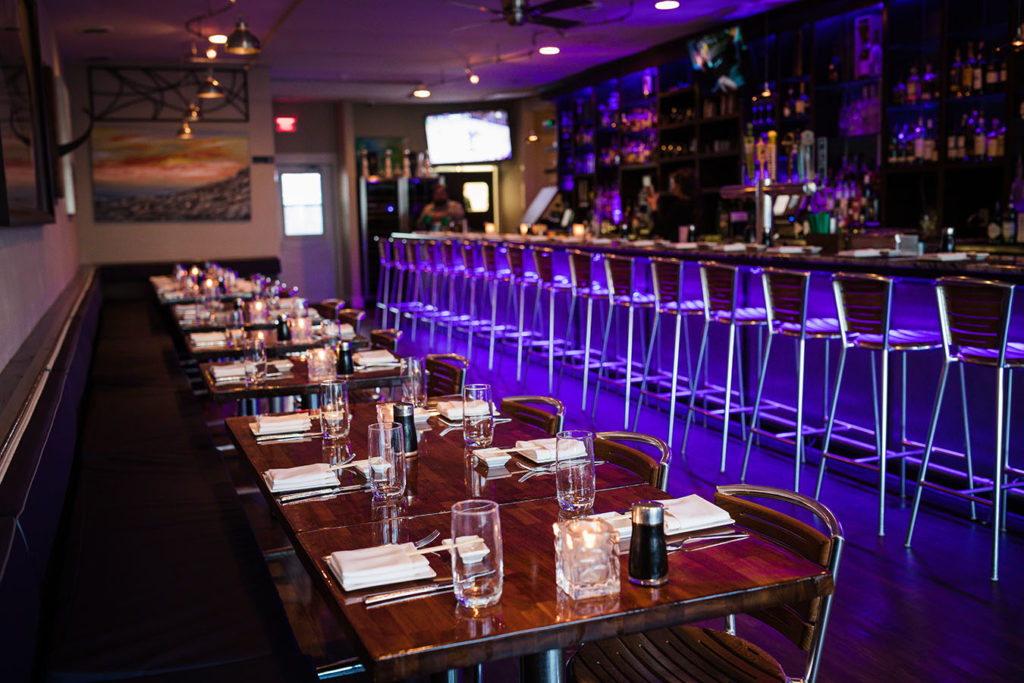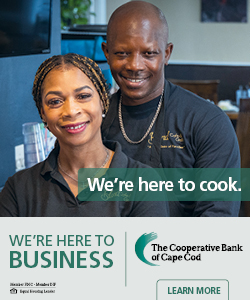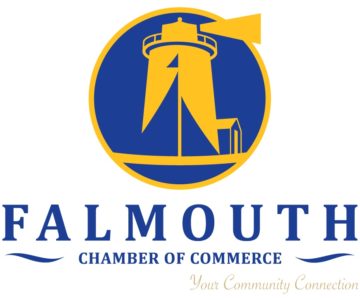Andy Baler opened up his second Bluefins Sushi and Sake Bar in Falmouth a year ago in March. Three days later, Governor Baker shut much of the state down, and because the restaurant was new and without a track record, Baler didn’t qualify for COVID assistance.
Something similar has happened again this year.
“It’s a brutal pandemic,” he said. “It just shows how fragile something can be.”
He is keeping the Falmouth restaurant open along with his original on Chatham’s Main Street and still can laugh about it, albeit painfully. Why? Because he has been in the fishing business for most of his life and business-threatening, out-of-the-blue changes are fairly common.

“This is nothing compared to the fishing industry,” Baler said. “Regulations change and the boats have to jump from species to species and they have to be a pro at figuring it out.”
Although his most recent sport fishing boat – and he has had more than a few – is named Bale Out, Baler hasn’t really left the fish business, which has been part of his life for 50 years, maybe more.
“I’ve spent all my time on the water, or walking the docks, day in and day out,” he said.
Baler’s dad, a dermatologist and teacher in Boston, had a house on Bass River, where Baler still lives today. He was an avid fisherman and they came down from Brockton pretty much every weekend. When he was a kid Baler said he had a little stand at the end of his street where he sold fish and crabs; by the time he was 16 he was fishing for bass and bluefish and selling those.
When he graduated high school, he ended up going to the University of Colorado for fisheries biology; there is no ocean but plenty of elk and mountains to ski. So he stayed after he graduated and was drawn into the race car scene.
He ended up getting into fuel technology, working with professional race car drivers, but one of the many oil and shale crises cut into the allure and he headed back here in 1986.
Cape Cod ventures
Baler made use of his degree and worked with the town of Yarmouth on shellfish propagation and other conservation work, but in 1989 Captains Greg Walinsky and Eric Hesse reached out to him about managing Cape Quality Bluefin.
The organization, the first locally of its kind, was made up of fishermen who caught the valuable tuna fish with harpoon, shipping to Japan. The business was nicknamed the “tuna cartel” and was very successful. The premise was getting fishermen paid directly from the tuna auction, thereby cutting out multiple middle men.
Baler ended up opening his own fish house, Nantucket Fish Company, when the others segued out, branching into other fishing businesses as well. He also joined the original board of the Cape Cod Commercial Hook Fishermen’s Association, now the Fishermen’s Alliance. He served for 16 years and thought it was important work.
“I feel like you should take an active role in fishery management and I have a good science background and I bought fish from every sector of fishermen in New England. I’m a staunch advocate, you feel it deep in your heart and in your bones that this is what you need to be doing,” he said.
“I saw the whole picture,” Baler said, adding that as a dealer he had a broader view than many. “I know how expensive it is for (fishermen) to operate and understand they need to be able to diversify to other fisheries, so it’s important to be able to work with all gear types. I like to represent the health of the fish stocks and fishermen. It’s not just one sided. It’s fish from fisherman to consumer. It’s the big picture.”
He served on the International Commission for the Conservation of Atlantic Tunas for close to a decade. In the beginning there were a lot of battles before the science improved, “just a boxing match,” he said.
He said he is proud of the work done with swordfish – the stocks are above the rebuilt goal that was set. Bluefin tuna is also a sustainable fishery. Baler is thinking of getting involved again because the science to manage tuna has not taken into account forage species, climate change and other factors.
Baler was involved in far more than tuna. He started Nantucket Fish on Atlantic Avenue in Dennis in 1994 and had seven box trucks traveling up and down the coast.
“We were exporting every single species to Japan,” he said.
The market was broad and big, from haddock to urchins. It wasn’t unusual to ship 30,000 pounds of sea bass a day, huge amounts of cod and fluke as well. Those fish were going to domestic and overseas markets.
Business was so strong that he ended up running another plant in Sandwich at the canal and a plant in Maine that shipped shrimp and monk livers, among other things.
“We were doing millions of pounds of groundfish. I was handling a lot at the plant at the canal. I had every live species you could have. Any species that swam we moved it,” Baler said. “You keep diversifying.”
Then it stopped.
“Our Japanese market basically disappeared. One of the main reasons was China was catching similar products in different oceans,” Baler said.
To stay in business meant staying nimble, diversifying again. But John Pappalardo, the chief executive officer of the Fishermen’s Alliance, said diversification alone doesn’t do Baler justice. Yes, he has done everything, Pappalardo said, from retail to restaurants, wholesale to processing, but “the guy never stops, he just goes and goes. He isn’t afraid to take risks. I think he has a very clear-eyed appreciation of the seafood business from a lot of different angles.”
Baler added another angle to his career: aquaculture. He started a farm in Yarmouth years ago with Walinski, who he later bought out. He still has it and it is the largest in town.
Time to change course again
By the early 2000s the fisheries were changing. The state was pressuring Chatham to put leases for packing space at the Chatham Fish Pier back out for public bids and Baler ended up getting one of the bays in 2000. He also was taking out a lot of boats at Stage Harbor.
Cod and other groundfish were not the bread and butter anymore. The catch was building around dogfish and skates.
But things got harder. Boats were catching fish, but regulations had become “crazy,” said Baler; the fisheries were being scrutinized.
“It was so much pressure. It wasn’t necessary,” he said.
There was a lot of paperwork and he kept everything straight and narrow, Baler said. “You have to be very knowledgeable, have all your prices and numbers,” he added, no easy task with 120,000 to 150,000 pounds of fish coming in a night.
Come 2009 another opportunity arose. The fish market next to the Chatham pier was in foreclosure and he bought it for $800,000, at auction. After a successful decade there, Baler ended up selling the market in 2019. He already had relinquished his lease on the bay in 2015.
Baler had been thinking about opening his own restaurant for years.
“I always wanted to open a sushi bar,” Baler said. He would walk down Main Street in Chatham thinking, “This would be a great little place for one.”
Turns out it was.
“COVID has been such a total disaster to all of us, but the restaurants have fared OK,” Baler said, explaining that while it’s hard to make money at 50 percent occupancy – or less – customers have been supportive. “Take-out has been good.”
He still has his facility in Dennis, and Yarmouth Oyster Farms, his aquaculture grant in Yarmouth, so diversification remains his style. (And he still has connections in Japan as a documentary film crew sought him out last year to capture how tuna was caught and sold on Cape.) The restaurants are staying open too, Chatham six days a week and Falmouth five, poised for better times.
“I can’t wait to bump elbows and drink martinis together,” he said with a laugh.
This story is courtesy of Cape Cod Commercial Fishermen’s Alliance. Read more fisheries news at capecodfishermen.org























